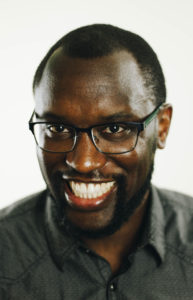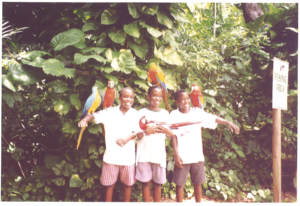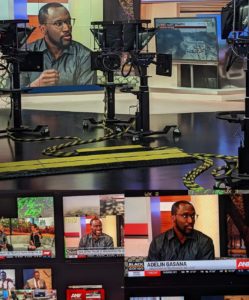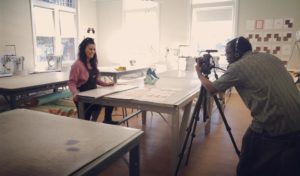
Interviewer: Tell us a little about your background. Where are you from and what got you where you are today in the field of documentary filmmaking?
Gasana: Well I’ll answer the hard question first. I was born in “the land of a thousand hills” in the beautiful country of Rwanda as an identical triplet.
Interviewer: Triplet? Wow!
Gasana: Yep. I came into the world as a package deal. Something my parents didn’t expect. When I was a toddler my brothers and parents moved to Chicago, Illinois. My father, a medical doctor in Rwanda, was here for his education and we tagged along. We were supposed to go back but then the war broke out here.
Interview: And, that began your life in America.
Gasana: Yup! The former refugee boy. I lived in Chicago for half my childhood and then the rest in South Florida.
Interviewer: Okay, from the coldest of winters to the hottest of summer. How did you get started in documentary filmmaking?
Gasana: Well, that story began way back in high school. My best friend and I snuck into a movie theatre. He was chasing a girl and I tagged along. We snuck into the film, Tupac Resurrection–still my favorite documentary film of all-time. I remembered vividly how enthralled I was when I was watching it. My eyes never left the screen–literally. It was the best thing I have ever seen on the big screen. When the credits were rolling and my friend and I were walking out with everybody else I said to myself that I don’t know what I just saw but I want to do just that. Ever since that I became a documentary film junkie. To this day! No good documentary passes my eyeballs.
Interviewer: When did you officially dabble into documentaries?
Gasana: My freshman year in college. I initially thought to myself that I will gain experience once I graduated but then a mentor told me–why not start now? You have access as a student plus you won’t get the heavy criticism since you’re just a student–you get to messed up. So, my first documentary was a little short one–about 13 minutes long I believe called, A Disease Called Promiscuity.
Interviewer: Hmmmmm…what was that one about?
Gasana: It was my foray in social commentary. Looking at promiscuity as a moral disease corrupting relationships and society as a whole by spreading diseases and ruining marriages and child development, etc. I was learning my style of processing documentary subject matter. It was very raw to say the least.
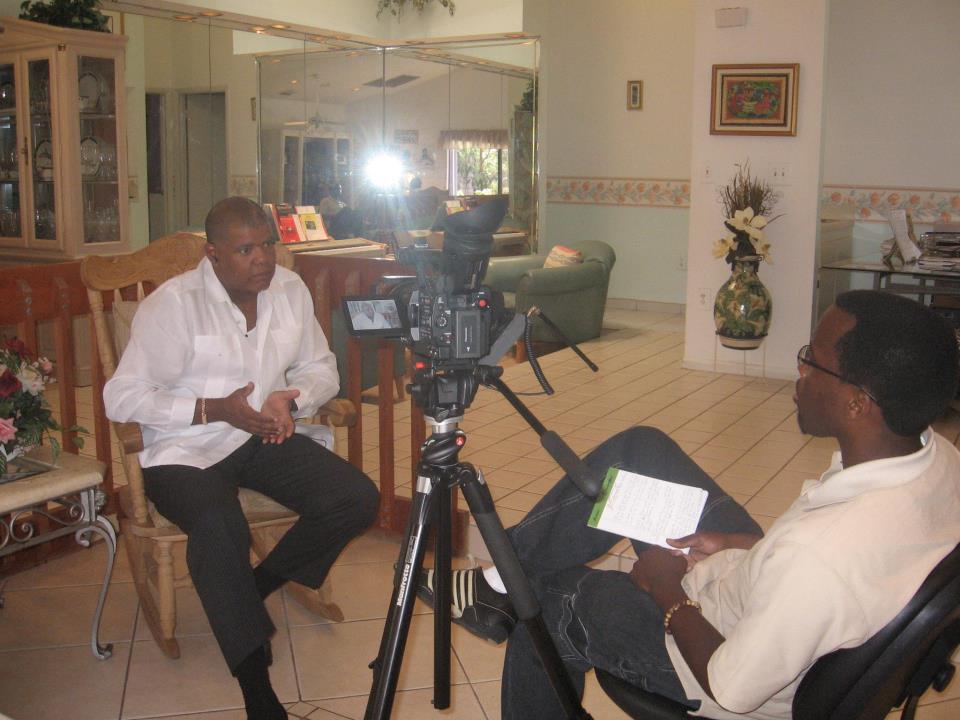 Interviewer: How do you come up with the topics that you address? In your filmography you touch on genocide, beauty, history taught a certain kind of way, Existentialism, Feminism, and even the Cuban Diaspora in Miami. It’s all over the place.
Interviewer: How do you come up with the topics that you address? In your filmography you touch on genocide, beauty, history taught a certain kind of way, Existentialism, Feminism, and even the Cuban Diaspora in Miami. It’s all over the place.
Gasana: Yes, I blame my Philosophy degree for that. I am naturally a curious person. Always asking questions figuring out how things turn out the way they do. That inquisitive approach is so innate–almost God inspired really. Whether the topics are science, history, economics, politics, and so on. I am constantly reading on the latest thing. But for me topics to document on film have been more refined over the years. My biggest documentary film in college was on feminism, The F Word. My junior year I had other colleges flying me and paying me to present my work and speak on it. I said to myself–I may actually be good at this. Then my biggest film after I graduated when I first officially became a documentary filmmaker was Cuban America. That film went all over the place. Film festival circuit, college screenings, VOD, and even PBS. That’s right I became a distributed filmmaker very early on.
Interviewer: Where did you go to college?
Gasana: I graduated from the University of West Florida in Pensacola, Florida with a Bachelor’s Degree in Telecommunication/Film and Philosophy as a Dual Major with Magna Cum Laude honors. And, to answer your other question–I pick out my film topics based on the seriousness of tone and subject matter. I believe documentary films can help bring a new perspective on something, it shines light on nuance and gets into the gray of most issues that are treated as black and white. For me documentary filmmaking represents the bonafide, the rebellious, the sagacious, the didactic, the educational, the inspiring, the intellectual, the engrossing, the creative, the artistic, and the revolutionary.
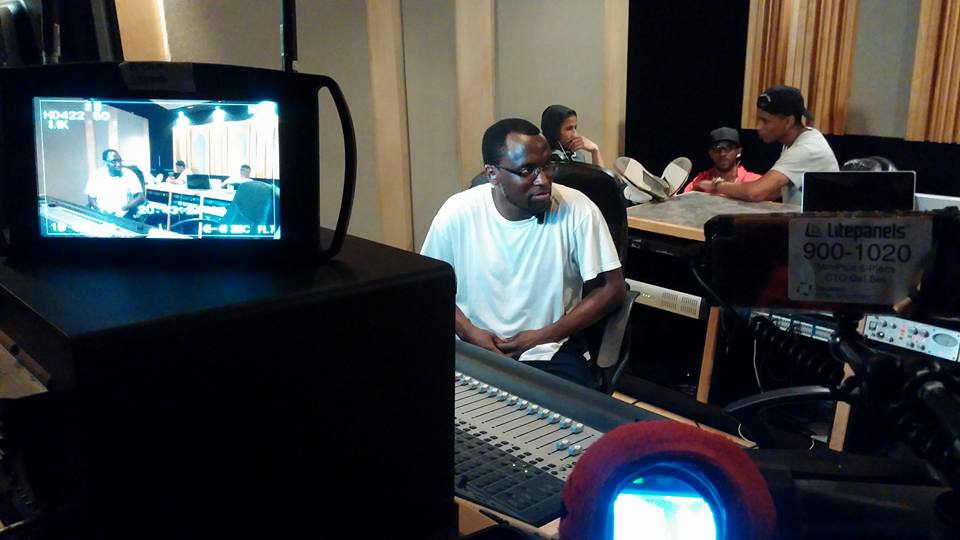
Interviewer: Who are some of your inspirations? Like your favorite filmmaker and why?
Gasana: My favorite filmmaker–among any genre is Raoul Peck. But, my favorite documentary filmmaker is Errol Morris. Morris has such a unique way of documentary film storytelling that is often genre-bending. He articulates meaning through cinematography and symbolic imagery just as much as a soundbite or a compelling piece of footage would do. Being an auteur in his own right he has a knack of illuminating his subjects and the context to the those subjects in a way most people would never think of. Ken Burns, Morgan Neville, Stanley Nelson, and Alex Gibney are all on my favorite lists for their own style and profundity in work. Plus, the sports documentarians like Jonathan Hock and Ezra Eldeman are in the top running. I watch them all. They have all moved the needle to what documentary films can be.
Interviewer: What is your definition of success?
Gasana: To be an A-lister. And, that doesn’t mean making a lot of money in this industry at all. I tell people all the time there’s really no big money in documentary filmmaking. For me an A-lister is someone who gets paid to do deliver his own films. When Michael Moore or Alex Gibney get phone calls they aren’t being asked to work on a gig for another person’s documentary project. They are being asked to do a Michael Moore film or Alex Gibney film on a given topic being asked to address. That’s the level of making it. Most documentary filmmakers don’t break until they are in their mid-50’s anyway. It’s a long, arduous road to maintain yourself in this field. But, making it to the top is when someone or some group trusts a six-figure budget to me to complete an Adelin Gasana film. Now, that may take a few Emmys or Oscars to be considered. I may not have any hair left on my head when that time comes though. But, if I stay healthy and hungry it’s definitely possible.

